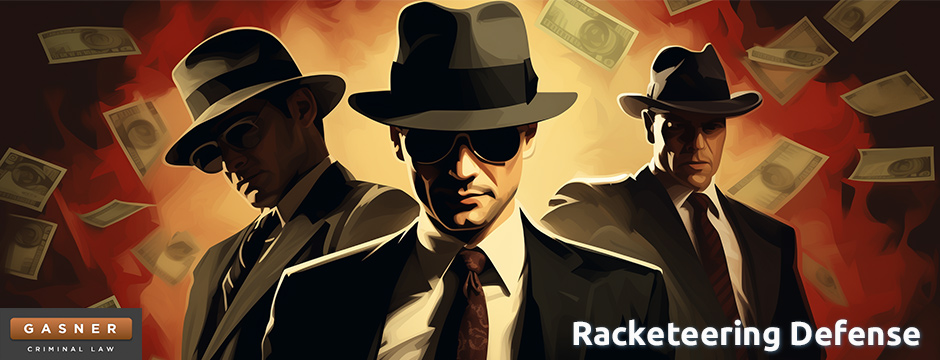Racketeering Defense
Racketeering, a pervasive issue within criminal law, has been targeted by federal and state legislatures through statutes such as the Racketeer Influenced and Corrupt Organizations Act (RICO) at the federal level and California Penal Code 186 PC at the state level. These laws aim to combat organized crime, addressing patterns of criminal behavior that have far-reaching implications. Let's examine the legal landscape surrounding racketeering cases, delving into the statutes, penalties, and defenses, explicitly focusing on federal RICO and its California state counterpart.
Understanding RICO and California Penal Code 186 PC
RICO, enacted in 1970, is a powerful tool in prosecuting organized crime entities. Its primary objective is dismantling criminal organizations by targeting their structure, activities, and financial gains. Similarly, California Penal Code 186 PC, part of the California Control of Profits of Organized Crime Act, aligns with RICO's intent to criminalize racketeering or criminal profiteering within the state.
Federal RICO and California's statutes share similarities in their approach, requiring the occurrence of at least two specific offenses within a stipulated timeframe, typically a decade. The offenses encompass a broad spectrum, including but not limited to arson, bribery, drug trafficking, fraud, and murder. These statutes are designed to encompass various criminal acts to curb organized criminal enterprises' influence and financial gains.
Penalties and Implications of Racketeering Convictions in California
Convictions under RICO or California Penal Code 186 PC demand proof of the defendant's financial involvement in benefiting a criminal organization. An individual acting independently would not face racketeering charges but would be prosecuted for individual crimes. Contrastingly, those contributing to an organization's monetary gains through criminal activities face racketeering charges and other associated crimes.
Penalties for racketeering convictions in California can be severe and hinge upon case specifics. Probation may be an option in certain scenarios, but incarceration is a frequent outcome. Depending on the gravity of the charges, sentences range up to 20 years or even life imprisonment. Defendants may also face asset forfeiture, liens on their property, and restitution to victims. Furthermore, victims hold the right to pursue civil racketeering claims, potentially resulting in additional damages against the defendant.
Defending Against Racketeering Charges
Given the gravity of racketeering charges and their repercussions, mounting a robust defense is crucial. Several defense strategies may be employed, depending on case intricacies.
A pivotal defense avenue involves disputing the existence of a criminal activity pattern. Establishing that the defendant lacks involvement in the requisite criminal acts or isn't associated with the alleged criminal organization can serve as a formidable defense. Discrediting the prosecution's assertion of a sustained criminal pattern is critical to undermining racketeering charges.
Another defense avenue revolves around challenging the legality of evidence procurement. Illegally obtained evidence may be deemed inadmissible upon proving its unlawful acquisition. Skilled defense attorneys adept at identifying such legal infringements can motion to exclude such evidence, potentially weakening the prosecution's case. We discuss the possible defenses at length in the post Possible Defenses for Racketeering.
Talk with an Attorney Before It Is Too Late
The intricate nature of racketeering cases demands a thorough understanding of applicable laws, penalties, and defense strategies. Defending against racketeering charges is difficult; it takes a practiced eye to find the proper defense for your case. The laws are strict, and the punishments are severe, so find an attorney with experience in this practice area. Contact Gasner Criminal Law by calling 415-782-6000 today. We want to start working on your defense to help you with your gun charges case.
References

